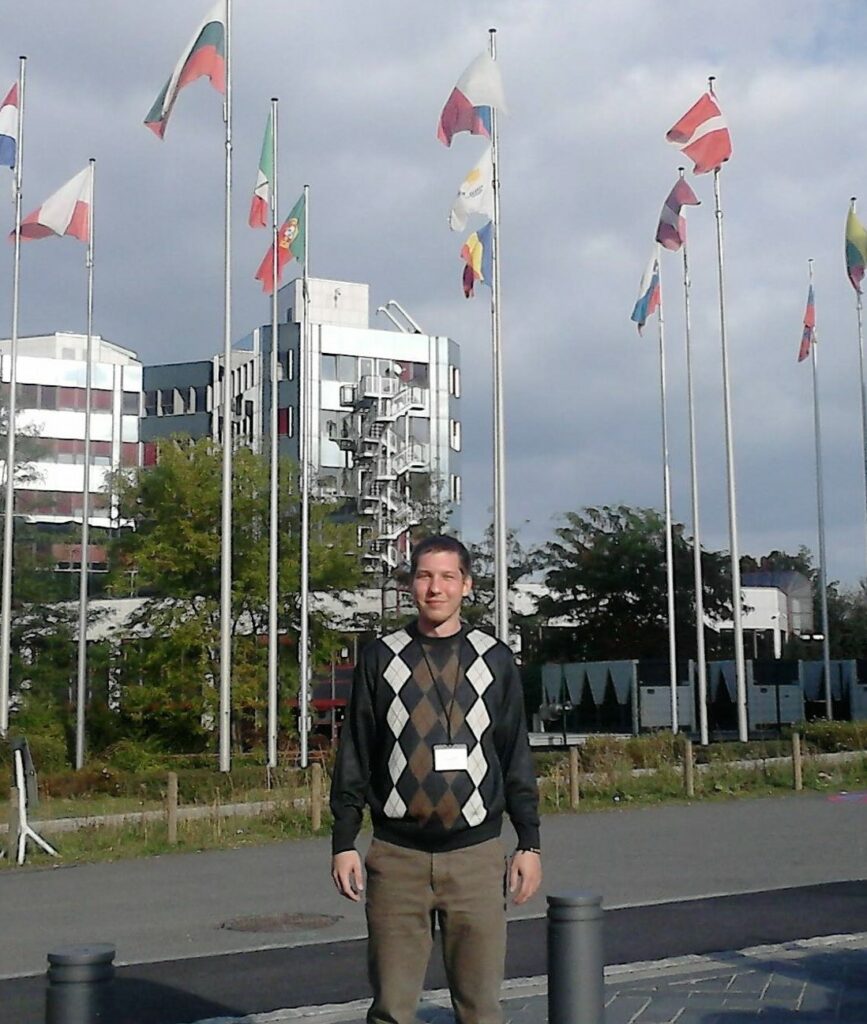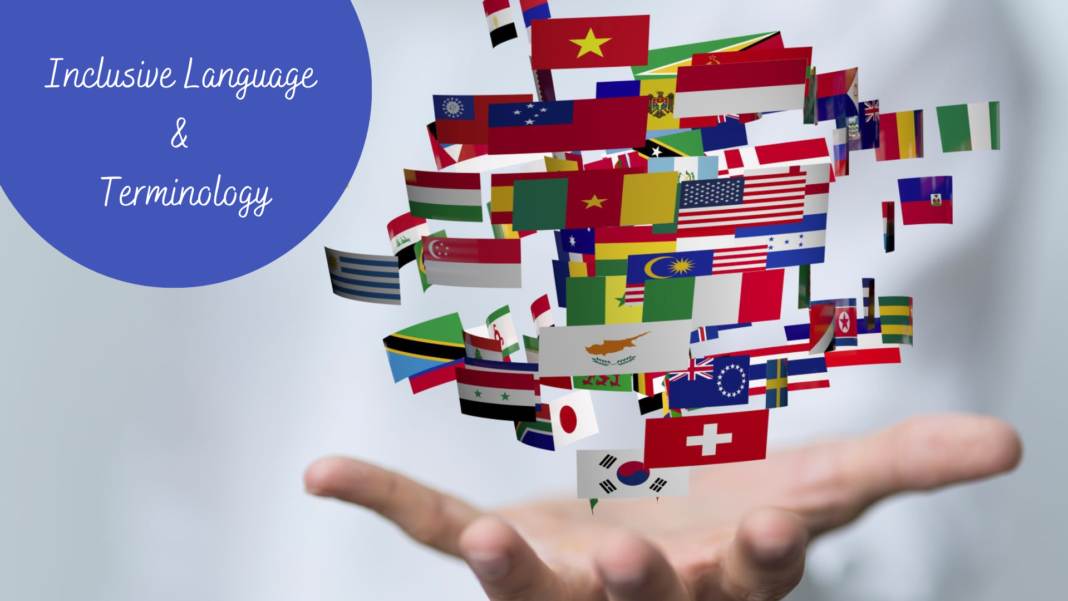What is inclusive language? Do we really need it?
Language is a powerful tool that can be used to include and show respect for people. However, it can also be used to mock people, discriminate against them, stigmatise them, and perpetuate negative social stereotypes – all of which can ultimately lead to hate and violence.
That’s why inclusive language has been gaining huge momentum in recent years. Both state bodies (legislators, governments and the judiciary) and companies are trying to incorporate language that promotes social equality regardless of gender, ethnicity, age, sexuality, disability, and religion.
But can the language we use really help to create a more open society? According to the famous Sapir-Whorf hypothesis (also called the hypothesis of linguistic relativity), it certainly can. Our human experience is fundamentally and inextricably linked to the use of language. Thus, specific linguistic choices can influence our thought process up to a point. At the same time, it can shape entire social landscapes, cultures, and realities.
But for some stakeholders, inclusive language has a strong political flavour. Accepting or refusing (or even mocking) inclusivity fuels heated political debates where (often) right-wing actors accuse the other side of political correctness or “wokeism”. Even though progressive thinkers can sometimes get lost in these new, unchartered territories and make themselves look absurd at times, this doesn’t mean that inclusive language doesn’t play an important role in our lives. And change our lives for the better.
Inclusive language and inclusive terminology
Let’s look at this English sentence:
“Yesterday my boss told me they were thrilled with my performance!”
After having read the sentence, we don’t know whether the boss’s gender is male, female, or other. There would be nothing wrong with “she was thrilled” or “he was thrilled”. This example only shows that English is a highly non-gendered language grammatically (nouns usually have only one form for all genders (only one boss)), and English can achieve even more gender neutrality by using the singular they.
On the contrary, the majority of the official EU languages (excluding Finnish, Estonian and Hungarian) are grammatically gendered. They usually can’t conceal gender, so they need to focus on different strategies in order to achieve gender-sensitive language.
Gender is only one part of inclusive language. It is often complex to handle in gendered languages and requires intervention at sentence level. This means we have to deal with both nominal and verbal phrases.
For example, if we speak about a non-binary person in Croatian – a person who doesn’t want to use either male or female forms – we should rephrase the sentence from: “Moja kompanija ostvarila je velik uspjeh, rekao/rekla nam je” (he/she told us) to “Moja kompanija ostvarila je velik uspjeh, rečeno nam je” (literally: we’ve been told). Similar techniques will require some deliberation, research and training. An excellent MA thesis by Marta Špoljar, the first of its kind in Croatia, has been published on whether “they” can be translated into Croatian.
In contrast, inclusive terminology is far more straightforward. If terms are by definition of nominal nature, inclusive terminology deals only with nominal strings of words (of course, specialised or technical ones as opposed to common nouns).
What terms should we use in the field of disability?
When dealing with any kind of disability, the rule of thumb is to use a noun followed by a complement (or, alternatively, preceded by an adjective). One basic example would be “person with a disability”.
The idea behind putting the person first is to emphasise their integrity. Disability is only one part of their identity. Besides “person with a disability”, English also uses the term “disabled person”. However, we shouldn’t use “the disabled” where the adjective is nominalised. Why not? Because a single trait then becomes the whole person and reduces them only to their disability.
Recently, I’ve been doing a translation revision of a text where the term “osoba s posebnim potrebama” appeared for a disabled person (literally: person with special needs). This has motivated me to further research this topic, educate the translator and the client, making sure that similar insensitive terminology isn’t used in the future. Translators, terminologists and other linguists play an important role in this process.
IATE, European Union Terminology, and EUR-Lex are always reliable sources where you’ll be able to find terminology that is inclusive and non-discriminatory.
Now, to conclude, let’s have a look at some common terminology used in the field of disability across several EU languages.
| English | Spanish | French | Croatian |
| person with a disability disabled person | persona con discapacidad | personne handicapée | osoba s invaliditetom |
| person with an intellectual disability | persona con discapacidad intelectual | personne ayant une déficience intellectuelle | osoba s intelektualnim teškoćama |
| person with a learning disability | persona con dificultades específicas de aprendizaje persona con trastornos de aprendizaje | personne ayant un trouble d’apprentissage | osoba s teškoćama u učenju |
| blind person person who is blind | persona ciega persona con ceguera | personne aveugle personne ayant une déficience visuelle personne non voyante | slijepa osoba osoba koja je slijepa |
| deaf person person who is deaf person with a hearing impairment | persona sorda persona con sordera persona con discapacidad auditiva | personne sourde personne ayant une déficience auditive | gluha osoba osoba oštećena sluha |
| wheelchair user | usuario de silla de ruedas | personne en fauteuil roulant utilisateur de fauteuil roulant | osoba koja se služi kolicima |
| person who has epilepsy | persona con epilepsia | personne épileptique | osoba koja ima epilepsiju |
| person with autism | persona con autismo personas con trastornos del espectro del autismo | personne autiste | osoba s autizmom |
| person with a mental health condition | persona con enfermedad mental persona con problemas de salud mental | personne ayant un trouble de santé mentale | osoba s poteškoćama mentalnog zdravlja |

Written by Ivan Fosin
Ivan Fosin is a former trainee (2013/2014) in the Croatian unit of the European Parliament’s DG TRAD. Ivan holds a master’s degree in modern languages (majoring in linguistics and translation) and is a member of the Chartered Institute of Linguists (CIOL). He owns a business, The Wordmonger, which offers translation, localization, editing and proofreading, transcreation, and copywriting. Besides blogging, terminology is an essential (and a very dear) part of his everyday work.

